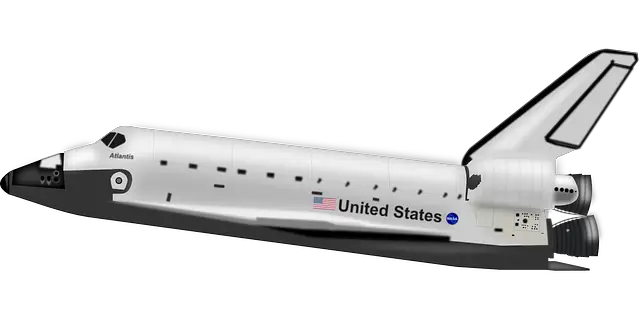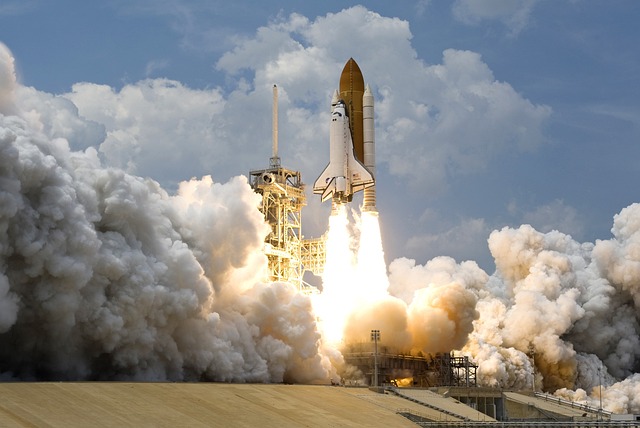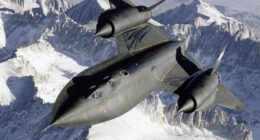Aeronautics and astronautics are two distinct fields of study and exploration. While aeronautics focuses on the science, engineering, and technology involved in designing aircraft for flight within Earth’s atmosphere, astronautics emphasizes the processes and technologies necessary for space exploration beyond Earth’s atmosphere.
What is aeronautics?
(Image by Jose Maria from Pixabay )

Aeronautics is the study of flight and the design of aircraft. It includes both manned and unmanned flight, and encompasses a wide range of topics such as aerodynamics, propulsion, avionics, materials science, and structural analysis.
What is astronautics?
(Image by OpenClipart-Vectors from Pixabay )

Astronautics is the science and technology of spaceflight. It deals with the design, construction, operation, and maintenance of spacecraft. Astronautics includes both manned and unmanned flight, and is often divided into subfields such as propulsion, navigation, guidance, and control.
Aeronautics Vs. Astronautics – Key differences
Aeronautics and astronautics are both specialized fields of engineering that deal with different aspects of flight, and they differ in their scope and focus.
Aeronautics is the study of the design, construction, and operation of aircraft, including airplanes, helicopters, and other flying machines that operate within the Earth’s atmosphere. Aeronautical engineers work on developing technologies and designs that can improve the performance and safety of aircraft, including aerodynamics, propulsion systems, and materials science.
Astronautics, on the other hand, is the study of the design, construction, and operation of spacecraft and rockets that operate beyond the Earth’s atmosphere. Astronautical engineers work on developing technologies and designs that can improve the performance and safety of spacecraft, including rocket propulsion systems, guidance and navigation systems, and life support systems.
In essence, aeronautics deals with flight within the Earth’s atmosphere, while astronautics deals with flight beyond the Earth’s atmosphere. While there is some overlap between the two fields, they each have their own unique challenges and areas of specialization.
Why study both disciplines?
There are many reasons to study both disciplines. For one, they are both fascinating fields of study. Aeronautics deals with the science of flight, while astronautics deals with the science of space travel. They are both integral parts of the field of aerospace engineering.
Another reason to study both disciplines is that they complement each other well. Many concepts in aeronautics can be applied to astronautics, and vice versa. By studying both disciplines, students can gain a well-rounded education in aerospace engineering.
Most careers in aerospace engineering require knowledge of both aeronautics and astronautics. By studying both disciplines, students will be better prepared for careers in this exciting field.
Is aeronautics and astronautics the same as aerospace engineering?
Aeronautics and astronautics are often confused with one another, but they are actually two different fields of study. Aeronautics deals with the design and construction of aircraft, while astronautics focuses on the science of spaceflight. Both fields require a deep understanding of physics and engineering principles, but aeronautical engineers typically deal with smaller objects that operate within the Earth’s atmosphere, while aerospace engineers focus on larger vehicles that travel beyond it.
Aerospace engineering is a field that incorporates both aeronautical and astronautical engineering. It is the branch of engineering that deals with the design, construction, and operation of aircraft and spacecraft. Aerospace engineers are responsible for developing new technologies for use in aviation, defense systems, and space exploration.
Is Elon Musk a Aerospace Engineer?
Elon Musk is not an aerospace engineer. He is a business magnate, industrial designer, and engineer. He is the founder, CEO, CTO, and chief designer of SpaceX. SpaceX designs, manufactures, and launches advanced rockets and spacecraft. The company was founded in 2002 to revolutionize space technology, with the ultimate goal of enabling people to live on other planets.
So while Elon Musk may be many things, an aerospace engineer he is not.
Can aeronautical engineer join NASA?
Aeronautical engineers may join NASA as part of the astronaut corps. Astronaut candidates must have a bachelor’s degree in engineering, a biological science, a physical science, or mathematics. They must also meet the minimum qualifications for the astronaut corps, which include being physically fit and passing a strenuous physical examination.
Can aeronautical engineers fly planes?
Aeronautical engineers are trained to design and develop aircraft, including airplanes, helicopters, and spacecraft. While they are not specifically trained to fly planes, some aeronautical engineers may also have a pilot’s license and be able to fly planes.
However, it is important to note that the skills and knowledge required for designing and developing aircraft are different from those required for flying them. Aeronautical engineers focus on the science of flight, aerodynamics, materials science, and the design and construction of aircraft components and systems. Pilots, on the other hand, must have extensive training and experience in flying and operating aircraft, including knowledge of navigation, communication, and emergency procedures.
In some cases, aeronautical engineers may work closely with pilots and other aviation professionals to test and evaluate aircraft performance and safety, but this does not necessarily mean that they are qualified to fly planes themselves. Ultimately, the ability to fly a plane requires a separate set of skills and qualifications beyond those of an aeronautical engineer.
The advantages and disadvantages of becoming an aeronautics engineer
Advantages of becoming an aeronautical engineer:
- Career opportunities: Aeronautical engineers are in high demand in the aerospace industry, and there are many opportunities for employment in various fields, including aircraft design, development, testing, and maintenance.
- Job satisfaction: Aeronautical engineers have the opportunity to work on complex and challenging projects, and see their ideas and designs come to life in the form of aircraft and spacecraft.
- Competitive salary: Aeronautical engineering is a high-paying profession, with salaries that are often higher than the average for other engineering fields.
- Creative outlet: Aeronautical engineers are able to use their creativity and problem-solving skills to develop new technologies and designs that can help advance the field of aerospace engineering.
Disadvantages of becoming an aeronautical engineer:
- High level of education required: Aeronautical engineering is a highly specialized field, and requires a significant amount of education and training. A bachelor’s degree in aeronautical engineering is typically the minimum requirement for entry-level positions.
- High level of competition: Due to the high demand for aeronautical engineers, the competition for jobs in the field can be fierce. This can make it difficult for new graduates to find employment.
- High stress environment: Aeronautical engineers are often responsible for the development of complex and high-risk systems, which can be stressful and require a high level of attention to detail and accuracy.
- Limited job opportunities: While there are many job opportunities in the aerospace industry, aeronautical engineers may find that their skills and expertise are limited to this specific field, which can make it difficult to transition to other industries or fields.
The advantages and disadvantages of becoming an astronautics engineer
Advantages of becoming an astronautical engineer:
- Exciting and challenging work: Astronautical engineers work on designing, building and testing spacecraft, rockets and other advanced technologies, making it a very exciting and challenging profession.
- Job satisfaction: Working on complex projects in the field of space exploration can be very rewarding and satisfying.
- High earning potential: Astronautical engineering is a highly specialized field, and as such, it often comes with a higher salary than many other engineering professions.
- Contributing to space exploration: Astronautical engineers have the opportunity to contribute to the advancement of space exploration and technology, making a significant impact on the future of space travel.
Disadvantages of becoming an astronautical engineer:
- High level of education required: Astronautical engineering requires a significant amount of education and training, including a bachelor’s degree in aerospace engineering or a related field.
- Limited job opportunities: The field of astronautical engineering is relatively small, and there may be limited job opportunities available for those seeking employment in this field.
- High stress environment: Working on complex and high-risk systems can be stressful, and require a high level of attention to detail and accuracy.
- High level of competition: Due to the specialized nature of the field, the competition for jobs in astronautical engineering can be intense, particularly for those seeking entry-level positions.
Featured Image – Image by WikiImages from Pixabay









